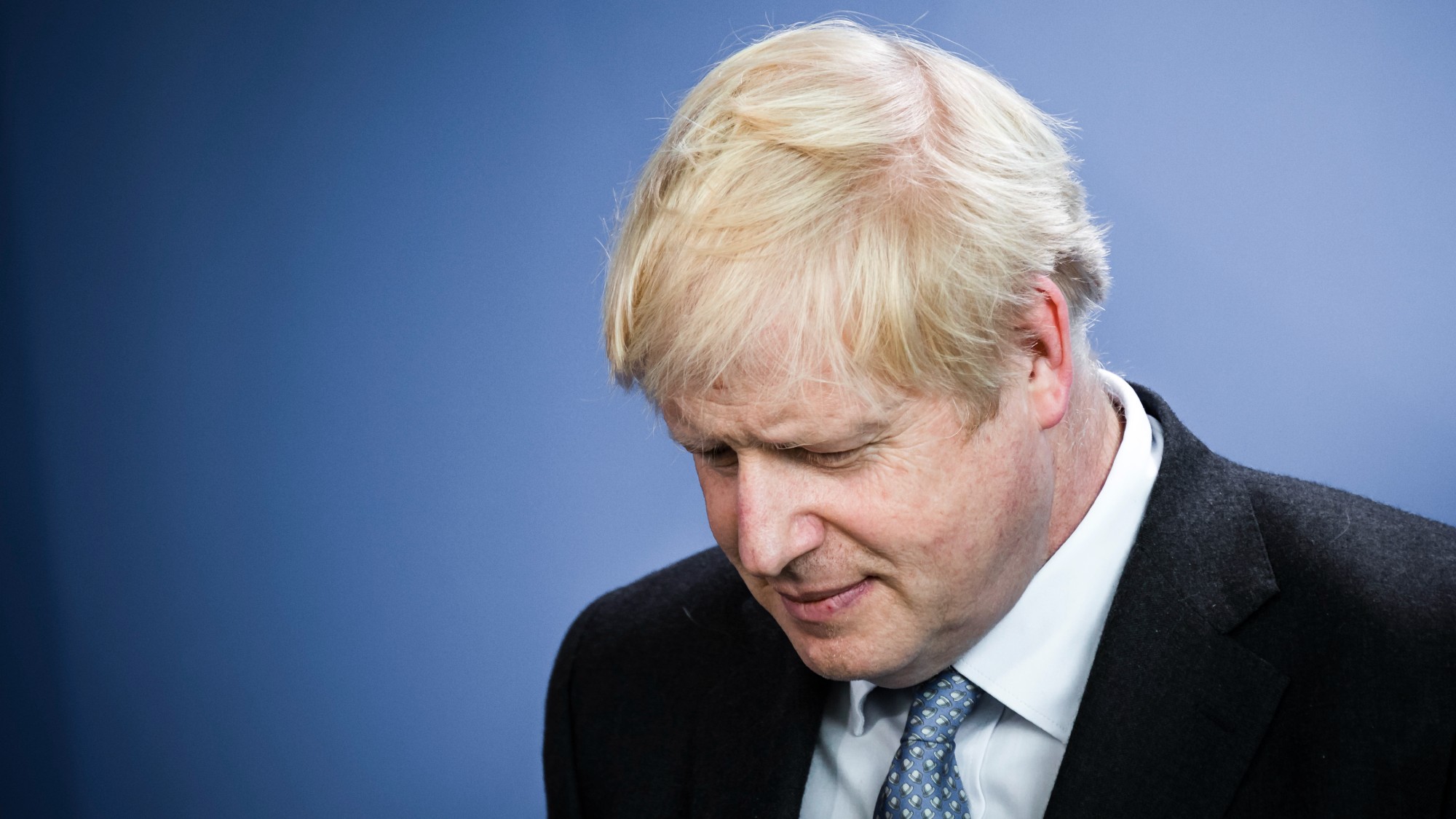Five things we learned from the Covid Inquiry report
’Grim reading’ for Boris Johnson and his former colleagues as government response found to be ‘chaotic’

A free daily email with the biggest news stories of the day – and the best features from TheWeek.com
You are now subscribed
Your newsletter sign-up was successful
As many as 23,000 UK deaths could have been avoided if the first lockdown had happened a week earlier, according to the findings of the Covid-19 Inquiry. The government’s response to the deadly virus was “too little, too late”.
The 760-page report of the second part of the inquiry’s hearings makes for “grim reading for the country’s former prime minister, and much of his top team”, said Andrew McDonald in Politico. “Boris Johnson, look away now.”
‘Lack of urgency’ led to ‘inexcusable’ delays
“A combination of incompetence and over-optimism at the heart of government” meant that warnings from China were “dismissed for weeks”, said Eleanor Hayward and Oliver Wright in The Times.
The Week
Escape your echo chamber. Get the facts behind the news, plus analysis from multiple perspectives.

Sign up for The Week's Free Newsletters
From our morning news briefing to a weekly Good News Newsletter, get the best of The Week delivered directly to your inbox.
From our morning news briefing to a weekly Good News Newsletter, get the best of The Week delivered directly to your inbox.
Inaction and palpable “scepticism” turned February 2020 into “a lost month”, said inquiry chair Heather Hallett. Covid cases were soaring but the Cabinet did not meet during the half-term break and Johnson did not chair a single meeting of the Cobra emergency committee.
Scientific models suggest that a nationwide lockdown on 16 March “would have halved the number of deaths in the first wave” but, by the time a lockdown was even considered, a week later, it “was already too late”. It was a difficult decision but the delays were still “inexcusable” – particularly when the same mistake was made before the second lockdown in November.
Downing Street culture was ‘toxic and chaotic’
Johnson “reinforced” a “toxic and chaotic” environment at the centre of government, in which the views of colleagues, “particularly women, often went ignored, to the detriment of good decision-making”, Hallett said.
This spread further than the prime minister. His special adviser at the time, Dominic Cummings, “materially contributed” to the sexist workplace culture. One “particularly disgraceful” WhatsApp message – “we cannot keep dealing with this horrific meltdown of the British state while dodging stilettos from that c***” – was symptomatic of his “offensive, sexualised and misogynistic language”.
A free daily email with the biggest news stories of the day – and the best features from TheWeek.com
Devolved nations ‘overly reliant’ on Westminster
The devolved governments of Scotland, Wales and Northern Ireland had to make “unenviable choices”, the report said. But they “failed to engage with the threat” and were “overly reliant” on Westminster to lead the response. A “lack of trust” between Johnson and the administrations’ First Ministers “coloured the approach to decision-making throughout the pandemic”.
None of the national cabinets acted with “sufficient speed” in the emerging crisis. The first case in Wales, for example, was identified on 28 February but, on 4 March, First Minister Mark Drakeford “chose to attend St David’s Day celebrations in Brussels rather than the Welsh Cabinet meeting”. In Northern Ireland and Scotland, “Covid-19 was only discussed under ‘any other business’ in meetings until as late as 24 and 25 February respectively”.
Partygate ‘undermined public confidence’
Rule-breaking and “Partygate” events resulted in public outcry. Then deputy cabinet secretary Helen MacNamara told the inquiry that she “would find it hard to pick one day when the regulations were followed properly inside” No. 10.
Officials and ministers breaking lockdown rules, and that rule-breaking not being swiftly addressed, “undermined public confidence in decision-making and significantly increased the risk of people not complying with the rules designed to protect them,” said Hallett.
Scientific advice ‘flawed’ and ‘bamboozled’ polticians
Under the heading “Flawed scientific advice”, the report notes that, until 14 and 15 March, Chris Whitty and Patrick Vallance “advised that restrictions should not be implemented until closer to the peak of infections”. They believed the public might tire of complying with restrictions if they were imposed too early and went on for too long.
However, “scientific advisers had not appreciated the likelihood of the NHS being overwhelmed before then”. At this point, there was a lack of adequate infection data, as well as hospital and health service data.
The inquiry heard that “many ministers lacked confidence in their ability to understand technical material”, said Jessica Murray in The Guardian, with Johnson in particular singled out for struggling with scientific concepts. Vallance’s notes from the time said Johnson was “bamboozled” and that watching him “get his head around the stats was awful”.
Hallett made 19 recommendations, adding to the 10 issued in the first report. More will follow in eight further reports, set to be published over the next two years.
Will Barker joined The Week team as a staff writer in 2025, covering UK and global news and politics. He previously worked at the Financial Times and The Sun, contributing to the arts and world news desks, respectively. Before that, he achieved a gold-standard NCTJ Diploma at News Associates in Twickenham, with specialisms in media law and data journalism. While studying for his diploma, he also wrote for the South West Londoner, and channelled his passion for sport by reporting for The Cricket Paper. As an undergraduate of Merton College, University of Oxford, Will read English and French, and he also has an M.Phil in literary translation from Trinity College Dublin.
-
 What to know before filing your own taxes for the first time
What to know before filing your own taxes for the first timethe explainer Tackle this financial milestone with confidence
-
 The biggest box office flops of the 21st century
The biggest box office flops of the 21st centuryin depth Unnecessary remakes and turgid, expensive CGI-fests highlight this list of these most notorious box-office losers
-
 What are the best investments for beginners?
What are the best investments for beginners?The Explainer Stocks and ETFs and bonds, oh my
-
 A Nipah virus outbreak in India has brought back Covid-era surveillance
A Nipah virus outbreak in India has brought back Covid-era surveillanceUnder the radar The disease can spread through animals and humans
-
 Covid-19 mRNA vaccines could help fight cancer
Covid-19 mRNA vaccines could help fight cancerUnder the radar They boost the immune system
-
 The new Stratus Covid strain – and why it’s on the rise
The new Stratus Covid strain – and why it’s on the riseThe Explainer ‘No evidence’ new variant is more dangerous or that vaccines won’t work against it, say UK health experts
-
 RFK Jr. vaccine panel advises restricting MMRV shot
RFK Jr. vaccine panel advises restricting MMRV shotSpeed Read The committee voted to restrict access to a childhood vaccine against chickenpox
-
 The UK’s opioid crisis: why the stats don’t add up
The UK’s opioid crisis: why the stats don’t add upThe Explainer A new report has revealed that the UK’s total of opioid-related deaths could be much greater than official figures show
-
 RFK Jr. scraps Covid shots for pregnant women, kids
RFK Jr. scraps Covid shots for pregnant women, kidsSpeed Read The Health Secretary announced a policy change without informing CDC officials
-
 New FDA chiefs limit Covid-19 shots to elderly, sick
New FDA chiefs limit Covid-19 shots to elderly, sickspeed read The FDA set stricter approval standards for booster shots
-
 How the care industry came to rely on migrant workers
How the care industry came to rely on migrant workersThe Explainer Government crackdown on recruiting workers abroad risks deepening care sector crisis, industry leaders warn